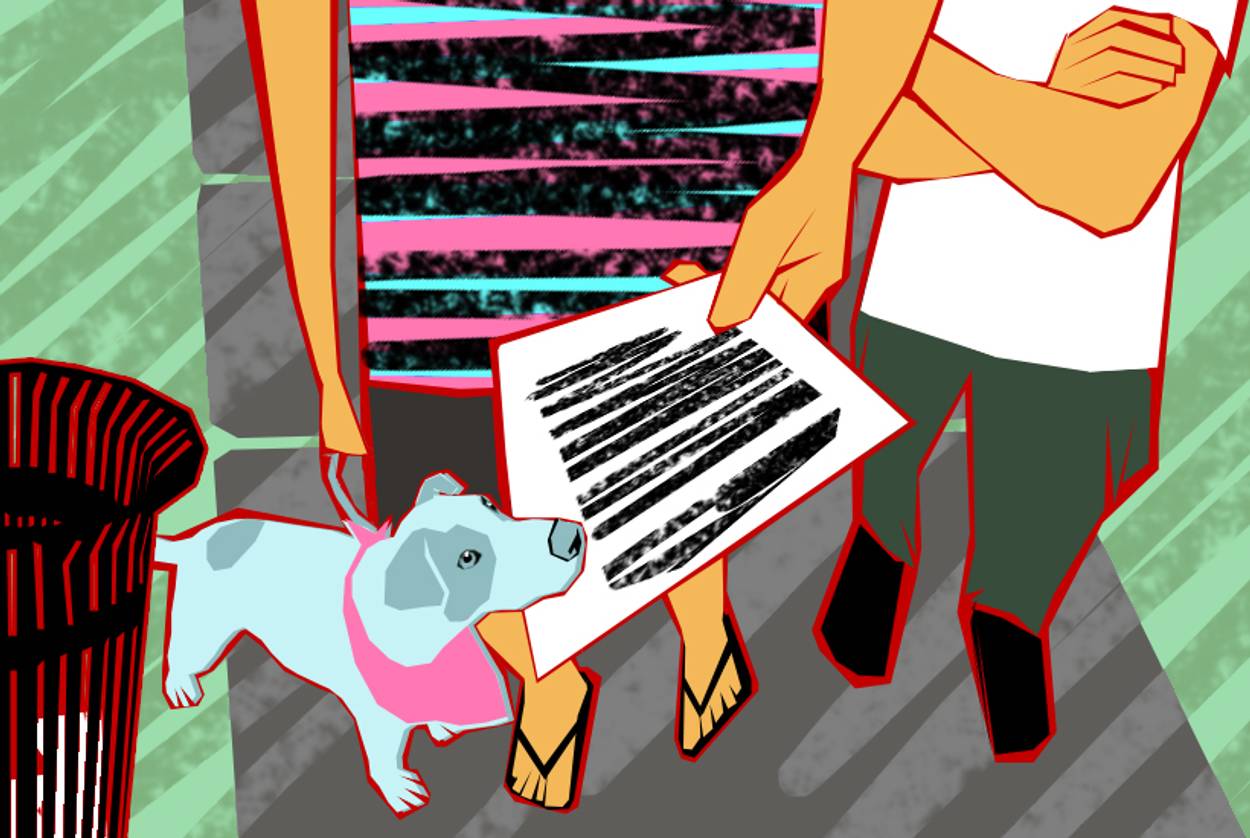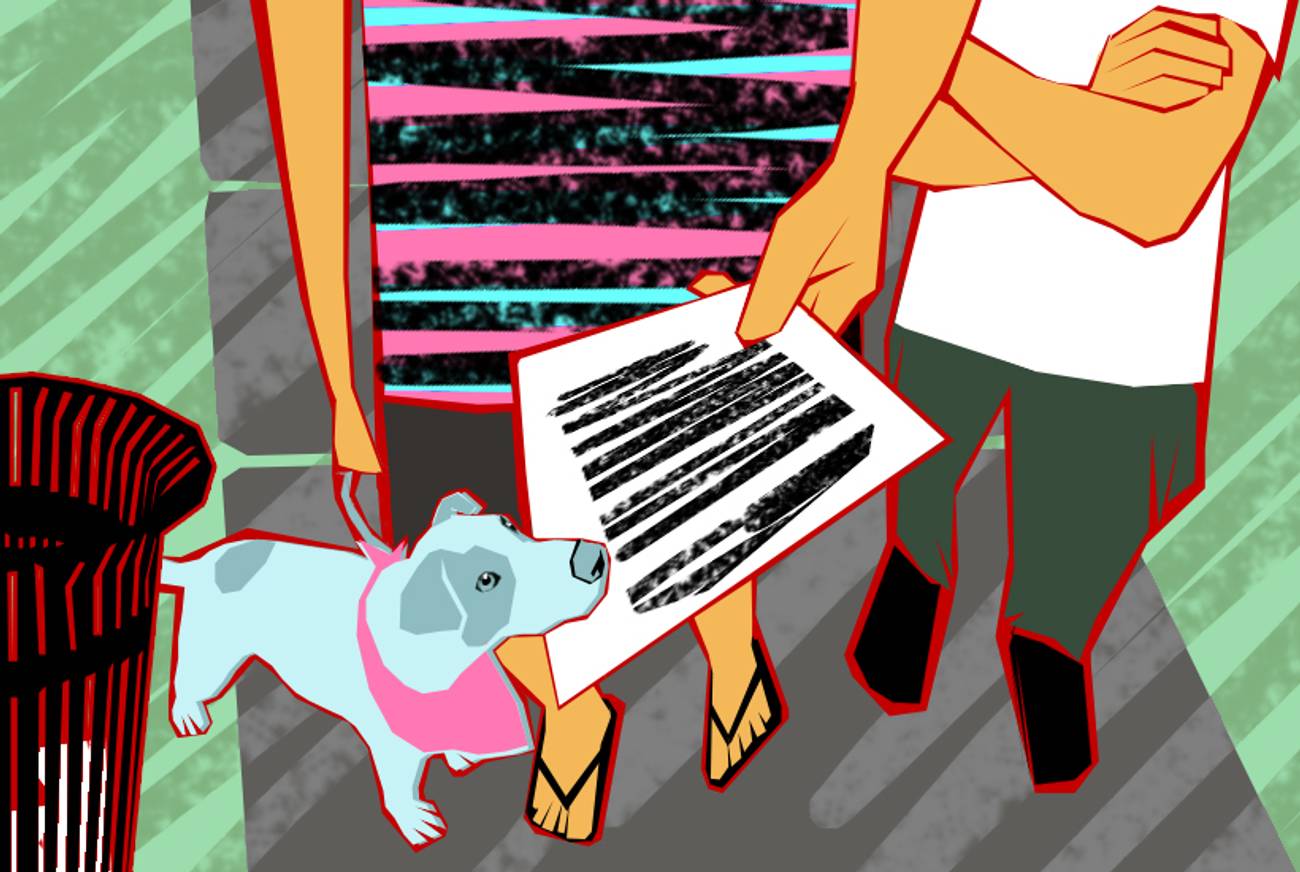Portrait of the Author as a Young Man—Serving in the Israeli Army
My brother was the first to read one of my stories. His unexpected reaction helped me understand the magic of writing.




I wrote my first story 26 years ago in one of the most heavily guarded army bases in Israel. I was 19 then, a terrible, depressed soldier who was counting the days to the end of his compulsory service. I wrote the story during an especially long shift in an isolated, windowless computer room deep in the bowels of the earth. I stood in the middle of that freezing room and stared at the page of print. I couldn’t explain to myself why I wrote it and exactly what purpose it was supposed to serve. The fact that I had typed all those made-up sentences was exciting, but also frightening. I felt as if I had to find someone to read the story right away, and even if he didn’t like or understand it, he could calm me down and tell me that writing it was perfectly all right, and not just another step on my road to insanity.
The first potential reader didn’t arrive until 14 hours later. He was the pockmarked sergeant who was supposed to relieve me and take the next shift. In a voice trying to sound calm, I told him that I’d written a short story and wanted him to read it. He took off his sunglasses and said indifferently, “No way. Fuck off.”
I went a few floors up to ground level. The recently risen sun blinded me. It was 6:30 in the morning, and I desperately needed a reader. As I usually do when I have a problem, I headed for my big brother’s house.
I buzzed the intercom at the entrance to the building and my brother’s sleepy voice answered. “I wrote a story,” I said. “I want you to read it. Can I come up?” There was a short silence, and then my brother said in an apologetic tone, “Not a good idea. You woke up my girlfriend and she’s pissed.” After another moment of silence, he added, “Wait there for me. I’ll get dressed and come down with the dog.”
A few minutes later, he appeared with his small, washed-out looking dog. It was happy to go out for a walk so early. My brother took the printed page from my hand and started reading as he walked. But the dog wanted to stay and do its business at the tree near the building entrance. It tried digging its little paws in the ground and resisting, but my brother was too immersed in reading to notice, and a minute later, I found myself trying to catch up to him as he walked quickly down the street, dragging the poor little dog along behind him.
Luckily for the dog, the story was very short, and when my brother stopped two blocks later, it regained its balance and, going back to its original plan, did its business.
“This story is awesome,” my brother said. “Mind-blowing. Do you have another copy?” I said I did. He gave me a big-brother-proud-of-his-little-brother smile, then bent down and used the printed page to scoop up the dog’s shit and drop it in the trash can.
And that was the moment I realized that I wanted to be a writer.
That was the moment I realized that I wanted to be a writer.
Even if he was unaware of it, my brother had told me something: that the story I wrote wasn’t the creased, shit-smeared paper now sitting in the bottom of the trash can on the street. That page was just a pipeline through which I could transmit my feelings from my mind to his, and when the transmission was done there was no more need for it. I don’t know what wizards feel the first time they manage to cast a spell, but it’s probably something similar to what I felt at that moment; I had discovered the magic that I knew would help me survive the remaining two long years until my discharge.
Translated by Sondra Silverston
Read Etgar’s first story here.
***
Like this article? Sign up for our Daily Digest to get Tablet Magazine’s new content in your inbox each morning.
Etgar Keret is a Tel Aviv-based filmmaker and fiction writer. He writes a regular column from Israel for Tablet.
Etgar Keret is a Tel Aviv-based filmmaker and fiction writer.